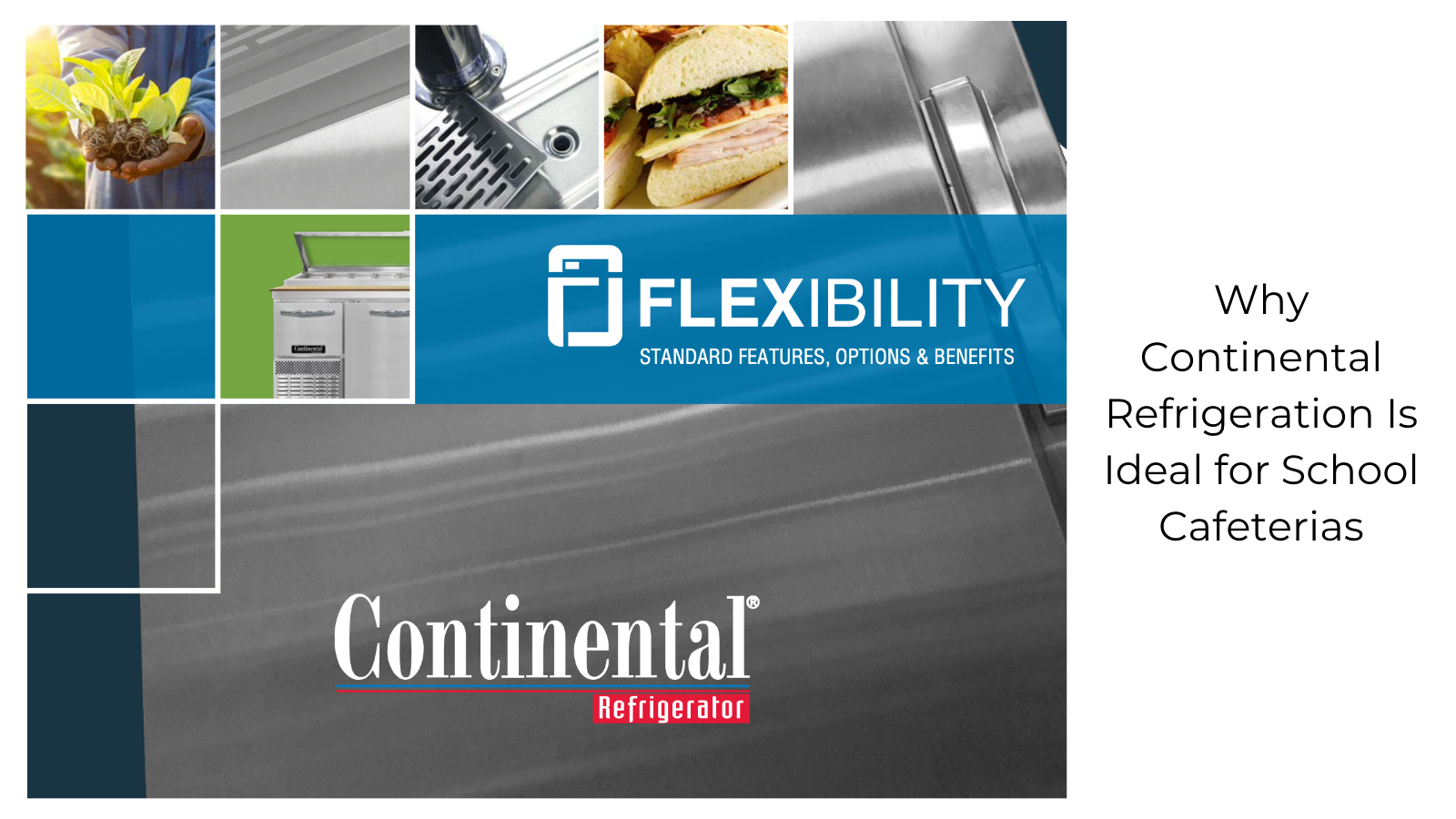School nutrition programs face many challenges ranging from budgetary constraints to nutrition guidelines and regulations. Add in the labor shortages in school cafeterias, and it's a recipe for inefficiency. The good news is there are foodservice equipment innovations that can help make school foodservice easier and more successful. Commercial refrigeration equipment from Continental can alleviate many of the challenges that school cafeterias face, allowing schools to serve healthy meals without added expenses.
The Challenges of School Cafeteria Refrigeration
Depending on the school district, there are three primary issues that education facilities can face when managing their foodservice operations: outdated equipment, compliance standards, and storage space. Here's a breakdown of each challenge and what it can mean for administrators and students.
Storage Space: Many schools feed hundreds if not thousands of students daily, meaning they need sufficient refrigeration for ingredients and other food products. Since it's not feasible to get deliveries daily or multiple times per week, these facilities need equipment that offers as much storage as possible while maintaining a small footprint.
Compliance Standards: Schools are not exempt from health safety standards, so all equipment must be able to keep products at the proper temperatures. However, these facilities may not have sufficient budgets for maintenance and upkeep, so machinery can get dirty and work inefficiently over time. When that happens, schools may risk failing health inspections, leading to food waste and unnecessary expenses.
Outdated Equipment: Some districts can keep up with modern technological upgrades, while others may be forced to work with old equipment for far longer than is recommended. Outdated school cafeteria equipment can lead to unsafe temperatures and the potential for foodborne illnesses, along with unnecessary food waste.
Installing Better School Cafeteria Equipment With Continental
Cafeteria operators and school administrators can benefit significantly from Continental refrigeration in schools. Some of the best advantages can include the following:
Low-Maintenance Models: Continental understands that school cafeterias may not have the staff to inspect and deep clean refrigeration units as often as they should. So, these units are designed to work for longer periods without getting bogged down with dirt and debris. Also, each surface is easy to clean, allowing workers to get more done in less time.
Flexible Refrigeration Options: Sometimes, a school may need a milk cooler to store dairy products for front and back-of-house service. In other cases, a school may benefit from deploying a mobile foodservice counter with a prep station, expediting station, and refrigeration units all in one. Move compressors to the left or the right of the unit. Extend the unit's capabilities beyond the base. No matter what a school needs, Continental has the right equipment to always deliver superior service.
Multiple Storage Sizes: Because school cafeterias are relatively limited, operators must do as much as possible with the space they're given. Continental refrigerators can come in various storage options, including smaller coolers that can fit virtually anywhere. With so many devices available, schools can maximize their productivity and ensure compliance every step of the way.









